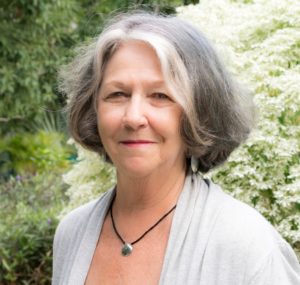
I have been musing about how to write a realistic Thanksgiving piece, while not spoiling anyone’s day of overeating and thankfulness in the process. Maybe it is not possible to share my experience and thoughts on this misrepresented day without offending those who just want to eat in peace. But I am going to try.
While I take a swing at the myth of peaceful, naive Native Americans inviting the Europeans to share in their abundance, I acknowledge that Thanksgiving has long served as a time for families and friends to share turkey and fixins’ while expressing gratitude for their good fortune. There’s nothing wrong with that. And while I plan to share a beautiful meal with my family on Thanksgiving, while taking the time to acknowledge the many gifts I have been freely given, I need to address what was never freely given.
A new book “This Land Is Their Land: The Wampanoag Indians, Plymouth Colony, and the Troubled History of Thanksgiving,” by David J. Silverman, released in advance of the upcoming 400th anniversary of the mythological 1621 dinner between the British colonists and Wampanoag Indians, shatters that Norman Rockwell-esque image of the people of different cultures sharing a turkey around the table. A review of the book on Smithsonian.com points out that, “For quite a long time, English people had been celebrating Thanksgivings that didn’t involve feasting – they involved fasting and prayer and supplication to God. In 1769, a group of pilgrim descendants who lived in Plymouth felt like their cultural authority was slipping away as New England became less relevant within the colonies and the early republic, and wanted to boost tourism. So, they started to plant the seeds of this idea that the pilgrims were the fathers of America.”
It’s all about marketing.
The Wampanoag no more gave up the land that was their sacred ground and home as a gesture of friendship than Africans willingly jumped onto the ships in the harbors of West Africa in order to serve in the most hellacious of conditions as a gesture of generosity and friendship toward the white Europeans who dragged them to bondage and death in a faraway land.
Between the theft from the indigenous people of the Americas and the free labor provided by the African slaves, life sure did get good for invaders.
And it remains good today. And marketing remains the key.
Not content with the feasting of Thanksgiving as a gateway drug to the commercialization of the birth of Jesus, the masters of commerce have sold us the day after – Black Friday. Black referring to the nomenclature of accounting. Being in “the black” equals profit. For whom, though?
While the privileged few revel in the numbing orgy of their own need for more – more yachts, mansions and attention – caring nothing for the multitudes they have deemed “consumers,” the suffering has increased to almost unbearable proportions for most of the rest of the world.
While 795 million people in the world do not have enough food to sustain health, we eat, we buy, we throw away – and then we do it again in an endless cycle of needless acquisition of junk.
And here’s the reality, according a book by Walter Brueggemann, John McKnight and Peter Block, copyright 2016, “An Other Kingdom, Departing the Consumer Culture,” “There is enough food to feed the world, but if the food were simply fully distributed, the market for food, as we know it, would collapse.”
The marketplace the authors say needs to be reordered, requires scarcity, which creates a certain kind of frenzy for more among the 99 percent, many of whom still think acquisition will make them happy.
So, as you enjoy the camaraderie of loved ones, and the privilege of having enough, a condition that has been freely given as an accident of birth, consider what it would mean to stop the cycle of mindless consuming in exchange for there being enough for everyone.
It will take that kind of covenant ultimately, to create a world where our children and theirs and theirs will all have enough.





